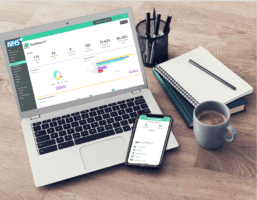Get to grips with the fundamentals of care plans and care recording. This post in our Care Planning 101 series covers how you can work towards improving your care recording processes. We all know that record keeping is an integral part of providing great care, keeping good records is not optional, and that the quality of your record keeping can reflect the standard of your professional care practice.
Robust record keeping is a mark of skilled and safe carers, whereas careless and incomplete record keeping often highlights wider issues. Great record keeping helps to protect the welfare of people in care and support services, the question is;
How do you know if your care records are fit for purpose?
CQC has set out a whole host of different guidelines and recommendations when it comes to care planning. For a full in-depth set of resources, we’d always recommend you visit the CQC website to ensure you’re up to date. Having said that, as a clear starter we’d advise that care records must present information that is:
- Sufficiently detailed to enable proper care
- Clear and concise
- Relevant to providing a person’s care
- Accurate and factual
- Objective
- Non-discriminatory and non-judgemental*
*Remember this reflects a commitment to person-centred care, equality & diversity principles
How can you improve your care recording?
- Be self-aware
Always think and ask yourself, would I be happy to read this report if it were written about me or my loved one? - Don’t guess
Only write down only what you directly experience and know to be true, not your assumptions or guesses. - Be specific
Avoid vague language, for example, “I found Mary crying today” is better than “Mary seemed upset” as it accurately describes your experiences. - Accurately describe your actions
Recording “I helped Vera to dress by fastening her buttons” is better than “carried out care tasks” and is of far higher value. - Be polite at all times
Avoid using offensive terms and phrases no matter the circumstances. - Do not ‘label’ a person
Avoid using words that label a person such as “Max is an aggressive person”. - Ensure you’re always relevant
Choose carefully what to record and consider both care needs and outcome-related requirements. - Consider who you are writing about
Describe them in a way that meets their individual needs, always ask yourself: “Is what I am writing acceptable to the person I am writing about?” - Write accurately and factually about behaviour
Describe the behaviour first, for example, “Val was banging on the table” and then note the person’s feelings; “This was because she was bored and not supported with meaningful occupation” instead of just writing “Val was aggressive” for instance.
How can you improve your care recording processes?
Recording care notes via pen and paper has been the accepted norm within the care industry, however, in light of the recent Covid-19 pandemic, digital care planning is becoming the new norm, offering greater efficiency, infection control, and more in-depth analysis of those being supported. The CQC and other regulatory bodies are now becoming more aware of the necessity of updating guidelines to enforce their use (in line with their 2021 vision). Systems like Nourish empower carers during care recording by,
- Speeding up the process of care note-taking for carers means that even more care records are taken (Carers using Nourish have just recorded over a million care notes in under 4 months)
- This increase in efficiency allows carers to add far more detail whilst care recording, and results in better care provision as carers are more informed
- Care managers are able to have a complete overview into the care recording processes of the teams they manage, therefore measures can be taken to help improve staff performance and define higher quality training requirements
How can you find out more?
If you’d like to find out more about how Nourish can help you improve your care planning and recording processes, then give us a call on 02380 002 288, or alternatively, you can book a personalised demonstration with our team today.







